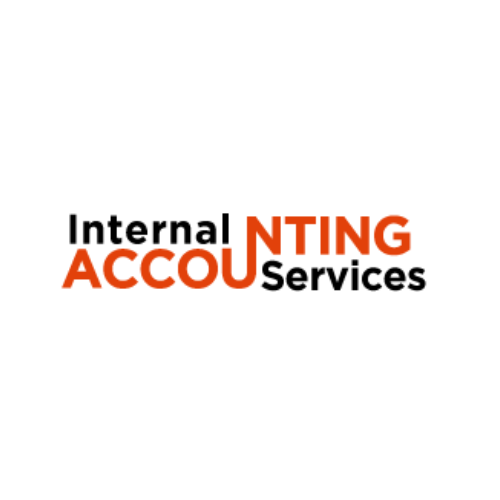
Cloud computing has revolutionized financial and managerial accounting by enabling real-time data access, enhancing collaboration, and improving data security. This article explores how cloud-based solutions streamline financial reporting, budgeting, forecasting, and decision-making, while reducing operational costs and ensuring greater accuracy. Discover the benefits and challenges of integrating cloud technology into accounting practices and its transformative impact on financial management.
Category
Business
The Impact of Cloud Computing on Financial and Managerial Accounting
The Impact of Cloud Computing on Financial and Managerial Accounting
Introduction
Cloud computing has revolutionized the way businesses manage their operations, and the field of
accounting is no exception. By providing scalable, flexible, and secure systems, cloud computing
has enabled significant advancements in both financial accounting and managerial accounting .
From automating routine tasks to enabling real-time data access and improving decision-making,
cloud-based tools are transforming accounting practices for businesses of all sizes.
How Cloud Computing Enhances Financial Accounting
• Real-Time Data Access Cloud accounting systems allow financial accountants to access up-
to-date financial data from anywhere. This real-time access ensures that financial decisions
are based on the most accurate and timely information.
• Automated Financial Processes Routine accounting tasks such as report generation,
reconciliation, and invoice processing are now automated through cloud-based software.
This automation reduces human error, saves time, and increases efficiency for financial
accountants.
• Cost Efficiency Traditional accounting systems often require expensive infrastructure,
maintenance, and IT staff. Cloud computing reduces these costs by eliminating the need for
physical servers and offering software-as-a-service (SaaS) solutions that are more affordable
and scalable.
• Collaboration and Accessibility Cloud-based accounting allows businesses to streamline
communication between departments. Both financial accountants and management teams
can access the same data in real time, enabling better collaboration and quicker decision-
making.
Impact on Managerial Accounting
• Improved Decision-Making Cloud computing enhances the ability of managerial
accountants to analyze and interpret financial data. By leveraging cloud-based analytics,
businesses can gain insights into performance metrics, allowing managers to make more
informed decisions regarding cost control, resource allocation, and profitability.
• Budgeting and Forecasting Cloud-based tools help managerial accountants build more
accurate budgets and forecasts by providing them with historical data and predictive
analytics. These tools allow businesses to anticipate changes in market conditions and adjust
their strategies accordingly.
• Efficiency and Cost Control Cloud platforms improve the ability of managerial
accountants to track and manage costs in real-time, which helps businesses operate within
budgetary constraints. Cloud computing simplifies complex financial modeling, thus
enhancing cost control efforts.
Key Features of Cloud-Based Accounting Software
• Security and Data Protection Cloud service providers offer advanced security measures
such as encryption, multi-factor authentication, and data backup to ensure that sensitive
financial data is protected.
• Scalability As businesses grow, so do their accounting needs. Cloud-based systems can
scale to accommodate more users, larger volumes of data, and more complex accounting
functions, making them an ideal solution for businesses looking for long-term growth.
• Integration with Other Business Systems Cloud-based accounting platforms integrate with
other business tools like Customer Relationship Management (CRM), Enterprise Resource
Planning (ERP), and payroll software, creating a seamless flow of information across all
areas of the business.
Cloud Computing in Financial Accounting Advisory Services
Cloud computing has transformed the way financial accounting advisory services are delivered.
With real-time data and advanced analytics, financial accountants can provide more accurate and
insightful advice to clients. Some key benefits include:
• Real-Time Financial Reporting Cloud platforms enable financial accountants to generate
up-to-date financial statements, cash flow reports, and performance analysis at the click of a
button, helping businesses understand their financial position quickly.
• Enhanced Client Service With cloud technology, financial accountants can offer more
responsive and personalized services to clients. Clients can access their financial data from
anywhere, and financial accounting advisory services can be delivered more efficiently.
• Data-Driven Insights Cloud-based tools help financial accountants provide actionable,
data-driven insights to clients, guiding them through financial challenges, optimizing
profitability, and supporting strategic decision-making.
Challenges of Cloud Computing in Accounting
• Data Security and Privacy Although cloud computing offers robust security, businesses
must remain vigilant about protecting their sensitive financial data. Ensuring compliance
with privacy laws and regulations is essential when using cloud-based accounting systems.
• Training and Adoption Transitioning to cloud-based accounting platforms can require
significant training for employees, which can be time-consuming and costly. However, the
long-term benefits often outweigh these initial costs.
• Dependence on Internet Connectivity Cloud accounting systems rely on a stable and
reliable internet connection. Businesses in areas with poor internet access may face
challenges in adopting cloud-based solutions.
The Future of Cloud Computing in Accounting
• AI and Automation Future cloud-based accounting platforms will integrate artificial
intelligence (AI) to automate more advanced tasks such as financial analysis, audits, and tax
planning, freeing up financial accountants to focus on more strategic activities.
• Blockchain Integration The use of blockchain technology alongside cloud computing will
enhance the transparency, security, and auditability of financial transactions. This integration
is expected to increase trust in financial reporting and accounting practices.
• Greater Personalization As cloud computing technology evolves, financial accountants
will have access to more tailored solutions that align with the specific needs and objectives
of each client, making financial services even more personalized and effective.
Conclusion
Cloud computing is revolutionizing financial and managerial accounting by providing businesses
with more efficient, secure, and scalable solutions. From automating routine tasks to improving
decision-making and enhancing financial accounting advisory services, cloud computing is setting a
new standard in accounting practices.
At Internal Accounting Services, we leverage the power of cloud computing to provide our clients
with real-time financial data, accurate reporting, and actionable insights. Our cloud-based solutions
are designed to optimize financial operations, ensuring that your business stays ahead in a
competitive market.
For more information on how cloud computing can benefit your accounting practices, visit our
website at www.internalaccountingservices.com.

Comments